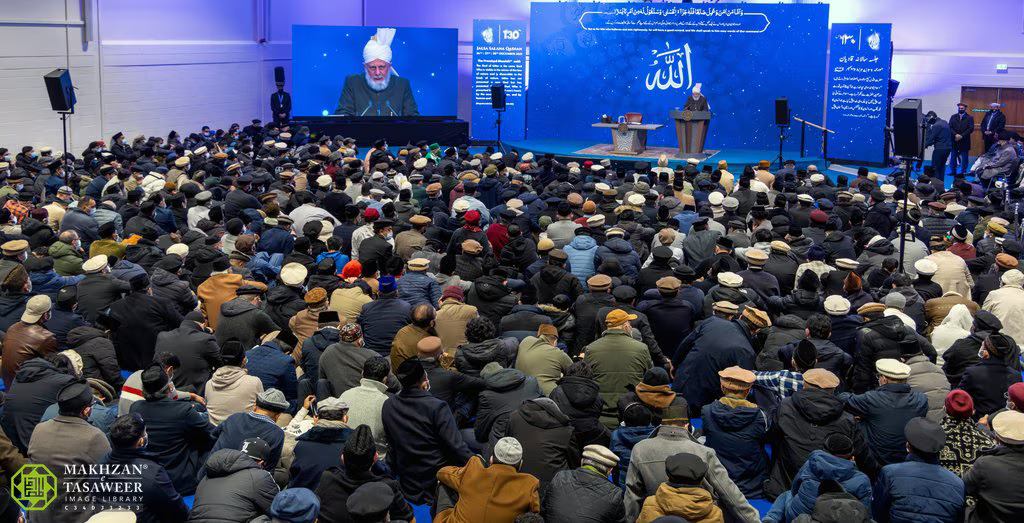Wage theft is a major social problem that the world has been facing for a long time. It can be described as a devastating international endemic.
SALEEQ AHMAD NAIK
JANUARY 29, 2024
In recent years, employees and wage earners, both in developing and underdeveloped countries, have been engaged in strikes, voicing concerns about low wages and unfair dealings, and demanding justice and fairness in the workplace.
According to the Bureau of Labor Statistics, work stoppages in the US since 2022 involved 120,600 workers. Even more alarming is the fact that the service-providing industries – including the education, health, and service sectors – accounted for 98 percent of idled workers annually[1]. Worse still, these statistics may exceed tens of millions if analysed and marshalled globally.
The primary cause of such strikes is the unjust treatment of labourers by their employers, including non-payment or delayed payment of wages and unfair working conditions.
As a comprehensive guide for humanity, Islam instils in its followers the spirit to uphold the rights of people across all segments of society. It lays down equitable principles for the fair treatment of workers, safeguarding the rights of labourers and employees.
Labour in Islam
Islam disapproves of idleness and staying disengaged. Muslims are encouraged to actively work and earn a lawful income through labour or by pursuing a suitable profession. The Holy Prophetsa says:
“Verily Allah hates the healthy-bodied idle person, who is neither concerned with his worldly life, nor the Hereafter.’’[2]
Islam holds manual labour in high regard. The Holy Prophetsa is reported as saying:
“No one has ever eaten better food than what he eats as a result of the labour of his hands. God’s Prophet David used to eat from what he had worked for with his hands.”[3]
The Holy Prophetsa exemplified this teaching himself and earned with his own hands, as it is reported:
“The Messenger of God said, ‘Allah did not send any prophet except that he used to be a shepherd of sheep’. So the companions asked, ‘Including you, O Messenger of Allah?’ He replied, ‘Yes, I used to be a shepherd for the people of Makkah, in return for some Qirats (i.e., coins of copper).’”[4]
Moreover, the Quran encourages believers to employ their God-given faculties, physical and intellectual, for the well-being of people. In essence, as per Islam, people are mandated to utilise their capabilities and earn a legitimate livelihood.
Wage exploitation
Wage theft, where employers do not pay the wages of their employees, is among the many social problems the world has been facing over the ages and can be called a devastating international endemic without any exaggeration.
According to a groundbreaking national study conducted in 2009, average low-wage workers lose approximately $2,634 annually—equivalent to 15 percent of their earnings—due to wage theft. Based on a survey of 4,387 workers in Chicago, Los Angeles, and New York, the study found that most of these lost wages result from failure to pay minimum wage, neglecting overtime compensation, not providing breaks, and requiring unpaid and off-the-clock work.[5]
In addition to being a grave violation of basic human rights, denying employees their wages results in protests and work stoppages, as mentioned above, causing economic losses and disturbance in society.
Islam responded to this crisis centuries ago by making Muslims duty-bound to treat workers fairly and equitably in all respects and by setting golden principles for preserving the rights of employees and labourers.
Islam regards honesty as a value that should permeate every aspect of human life. However, the Quran ensures fairness in business matters by emphatically stressing the importance of truthfulness in dealings with people. Allah states in the Holy Quran:
“And O my people, give full measure and full weight with equity and defraud not people of their things and commit not iniquity in the land, causing disorder.”[6]
Likewise, the Holy Prophetsa always emphasised the importance of paying wages in full. Hazrat Abu Hurairara narrates that the Prophetsa said, “Allah said, ‘I will be an opponent to three types of people on the Day of judgment: One who makes a covenant in My Name, but proves treacherous; One who sells a free person and eats his price; and One who employs a labourer and takes full work from him but does not pay him for his labour.’”[7]
On another occasion, he said:
“Whoever hires a worker should pay him his wages in full.”[8]
Islam has also considered the withholding of wages and not paying the labourers promptly as a great injustice. Significantly stressing the importance of timely payment of workers, the Holy Prophetsa says:
“Pay the worker his wage before his sweat has dried.”[9]
In addition to these exhortations, the Holy Prophetsa also set a practical example for his followers in this regard. It is reported that the Prophetsa used to get cupped and would never withhold the wages of any person.[10]
The Holy Prophetsa also reminded his followers that paying wages does not give someone the authority to mistreat their workers. While harsh treatment of labourers by employers and bad working conditions in the workplaces continue to be a problem in modern society, the following teaching by the Holy Prophetsa serves as a guiding light, even for the so-called civilised world of today. The Holy Prophetsa is reported to have said:
“Your servants are your brothers, and Allah has put them under your command. So whoever has a brother under his command should feed him of what he eats and dress him of what he wears. Do not ask them to do things beyond their capacity. And if you do so, then help them.”[11]
In short, Islam establishes golden principles that safeguard the rights of employees and labourers, acting as a beacon for all societies and guaranteeing the establishment of human rights.
I conclude with a stark warning to the world in this regard by Hazrat Mirza Masroor Ahmadaba, the World Head of the Ahmadiyya Muslim Community. He says:
“The poor are exploited for their cheap labour to produce goods. The wages are so low that they barely provide for two meals a day to a family. However, the rich are making billions of dollars’ worth of profit from this cheap labour. This is the very thing that is giving birth to restlessness and there will come a time when as a result, the poor will erupt forth like lava. This is because the modern modes of communication have created awareness within people and a realisation, and news from one place of the world travels rapidly to other parts. This has increased the desire of material goods in the poorer nations. When a poor person sees that he is being mistreated in this way, it increases his restlessness and peace is shattered. This is why Islam instructs, that for the sake of removing such discontent from society, take care of the rights of others in all your dealings. This is the means of lasting peace.”[12]
I pray that man comes to understand his responsibilities and imbibes true Islamic values so that justice may prevail and the rights of all sections of society may be established.
END NOTES
[1] Work Stoppages Summary, official website of the Bureau of Labor Statistics
[2] Sharh Nahjul Balaghah by Ibn Abi al-Jadid, v. 17, p. 146
[3] Sahih al-Bukhari, Kitab al-Buyoo’ (Book on Sales and Trade)
[4] Sahih al-Bukhari, Kitab al-Ijarah (Book on Hiring)
[5] Broken Laws, Unprotected Workers: Violations of Employment and Labor Laws in America’s Cities, Bernhardt et al., National Employment Law Project 2009
[6] Holy Quran 11:86
[7] Sahih al-Bukhari, Kitab al-Ijarah (Book on Hiring)
[8] Bulugh al-Maram, Kitab al-Buyoo’ (Book on Sales and Trade)
[9] Mishkat al-Masabih, Kitab al-Buyoo’ (Book on Sales and Trade)
[10] Sahih al-Bukhari, Kitab al-Ijarah (Book on Hiring)
[11] Sahih al-Bukhari, Kitab al-Iman (Book of Faith)
[12] Concluding address of Jalsa Salana Qadian 2021













0 Comments